All Erasmus+ courses for School Principals
 SI.1.CLIM
SI.1.CLIM
Develop an understanding of the main concepts and issues related to ecology through reflection on the role of education in promoting environmental awareness.
 LANG.1.EADM
LANG.1.EADM
Enhance English language proficiency, both written and spoken, for effective communication in administrative tasks, professional interactions, and cultural immersion.
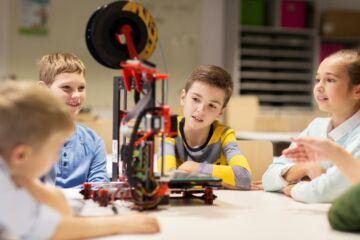 ICT.1.3DP
ICT.1.3DP
Discover the basics of 3D printing within the maker culture to promote environmental sustainability in their classroom. Ggain consciousness about the notions of a zero-waste life, as well as the culture of repair and the maker movement.
 ART.1.DPO
ART.1.DPO
Acquire key insights into positive communication to nurture a positive mindset and alleviate negative self-talk. Reflect on how the surrounding environment can convert negative communication into positive relationships.
 ART.1.SREL
ART.1.SREL
Understand what causes stress and how our bodies react to it. Discover effective strategies to relieve it, and apply them to improve your mental health and well-being.
 LANG.1.BEEP
LANG.1.BEEP
Enhance your English communication skills and explore the new European School Education Platform. Learn how to create and manage a project according to the eTwinning quality criteria.
 SI.1.TLEA
SI.1.TLEA
Discover the key principles and characteristics of transformational leadership, practicing emotional intelligence, active listening, and empathy within the framework of Non-Violent Communication.
 SI.1.LAL
SI.1.LAL
Discover how to plan for impactful interventions, identify application opportunities for yourselves and your schools. Learn to plan effective and equitable Professional Learning activities.
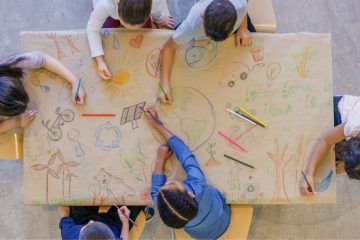 SI.1.EEF
SI.1.EEF
Discover the Finnish approach to environmental education that emphasizes each individual’s capacity to contribute to a sustainable future. Learn to support the students' personal relationship with nature and active citizenship.
 ICT.1.SCST
ICT.1.SCST
Learn the expected requirements of administrators and managers from organizations in the Erasmus+ program. Strengthen your digital skills and understanding of ICT and expand your knowledge to improve your technological experience and confidence.
 SI.1.ISL
SI.1.ISL
Acquire strategic managerial tools to promote inclusion in schools. Explore different leadership approaches and develop skills to create inclusive environments. Learn how to assess and improve school inclusivity.
 SI.1.LMA
SI.1.LMA
Work on your leadership strengths while also recognizing potential areas for growth and realistic solution strategies. Develop your professional role as leaders and identify with it.
 ART.1.WBC
ART.1.WBC
Acquire stress management techniques, resilience-building skills, and coping strategies to promote personal well-being and social-emotional learning. Discover methods to create a positive learning environment.
 ICT.1.DCI
ICT.1.DCI
Acquire an awareness of the morality and consequences of your own online activities, therefore developing the capacity to enhance digital literacy in the classroom.
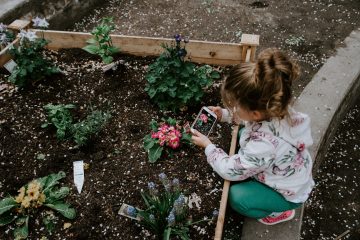 SI.1.ENV
SI.1.ENV
Discover the concept of Permaculture as a set of tools and knowledge focused on ecological and regenerative design thinking. Learn how to develop a permaculture design project.
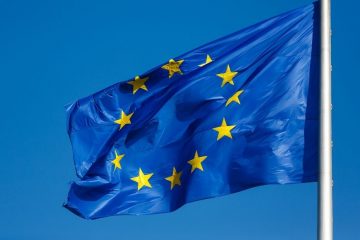 SI.1.EUR
SI.1.EUR
Develop practical expertise on EU funding and learn how to structure a clear project proposal to secure it. Discover new ways of communicating the needs of the school or organization, and learn how to write a coherent European Development Plan.
 ICT.1.RAD
ICT.1.RAD
Deepen the knowledge about podcasts as an easily accessible online tool that can provide students with useful knowledge. Teach the students how to make a podcast by explaining strategies for storytelling and interviewing, among others.
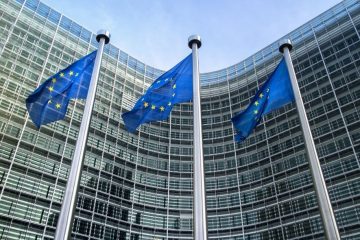 SI.1.DLEU
SI.1.DLEU
Explore the fundamentals of the rights as an EU citizen and discover to the notion of democratic life. Examine the UN Convention of the Rights of the Child, to teach your students their rights and duties as citizens of the Union.
 SI.1.SGA
SI.1.SGA
Acquire an innovative method to help your students build connections with the environment and establish a sense of community. Learn how to care for plants and trees, as well as how to use existing and recycled materials to create compost.
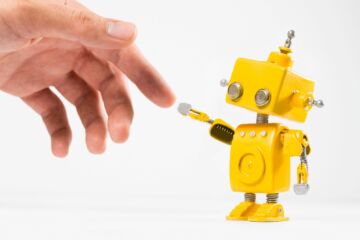 ICT.1.AIEN
ICT.1.AIEN
Gain a deep understanding of AI’s role and impact on educational leadership for K-12 institutions. Discover how to use AI assistant tools for strategic planning in educational settings.
 SI.1.CMST
SI.1.CMST
Discover practical strategies, involving conflict mediation, non-violent communication, and role-plays, to develop an effective conflict-resolution toolkit and a renewed feeling of purpose in your professional role.
 CSS.1.SELF
CSS.1.SELF
Gain tools to cultivate self-esteem, explore pillars of self-esteem, use Nonviolent Communication techniques, and foster a Growth Mindset for personal growth.
 ICT.1.DML
ICT.1.DML
Learn how to evaluate the credibility and quality of media products, besides becoming a responsible creator thereof and developing the ability to pass content on to students.
 SI.1.EDSY
SI.1.EDSY
Explore the particularities of different educational systems around the world and recent educational reforms. Discover how to use new thinking routines to evaluate the assigned educational system, perceive its complexity, and establish connections.
 ICT.1.MOFF
ICT.1.MOFF
Study, analyze, and practice the variety of possibilities provided by the program. Gain experience with data handling, editing, formatting, managing, and analysis.
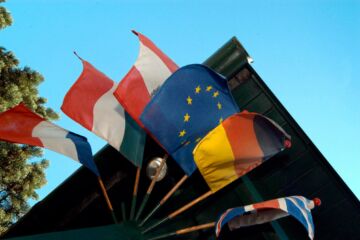 SI.1.FSTE
SI.1.FSTE
Take the first steps in the Erasmus+ program, gaining an understanding of its core values and principles. Explore key topics, including founding principles and priorities, and develop the skills required to plan and write successful Erasmus+ projects.
 SI.1.COAM
SI.1.COAM
Learn the basic principles and techniques of mentoring, while developing crucial skills such as rapport-building and classroom observation. Gain an understanding of how to contribute to building a school culture.
 SI.1.COLE
SI.1.COLE
Practice a variety of leadership core skills and reflect on how to use project-based learning as a methodology for lesson planning, community involvement, and action.

 SI.1.EDTF
SI.1.EDTF
Gain the ability to lead technology-driven transformations and make informed decisions about technology integration. Utilize technology to foster innovation and optimize school operations.
 SI.1.PAR
SI.1.PAR
Discover an array of communication strategies to adapt your teaching and collaboration with the parents of the students to modern standards, both in person and through digital educational platforms.
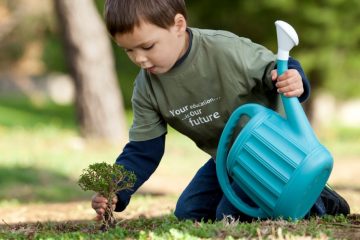 SI.1.STEW
SI.1.STEW
Acquire an understanding of ecosystem processes, fostering a sense of responsibility for its preservation. Guide students towards a greener future by encouraging them to view their actions from an environmental perspective.
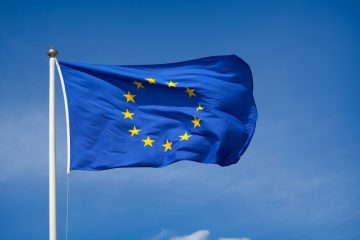 SI.1.EUE
SI.1.EUE
Acquire an understanding of the EU’s mission and objectives, and explore an array of learning materials to use in the classroom. Become familiar with the most relevant EU programs and how students can profit from them.
 SI.1.PROO
SI.1.PROO
Think about simple, practical, logistical changes that have been already introduced in other schools and European countries to help teachers teach and learners learn, while still following the legal requirements of the education laws.
 SI.1.RUN
SI.1.RUN
Develop an understanding of the importance of digital tools in the maintenance of solidity, focus on leadership. Learn how to successfully meet the needs of learners, teachers and administration.
 CSS.1.INEL
CSS.1.INEL
Engage in a variety of activities and discussions aimed at developing leadership skills, including communication, problem-solving, collaboration, and change management.
 SI.1.LEXC
SI.1.LEXC
Go beyond traditional leadership training by merging soft skills development with personalized coaching, strengthening essential skills such as communication, social skills, project management, and time management.
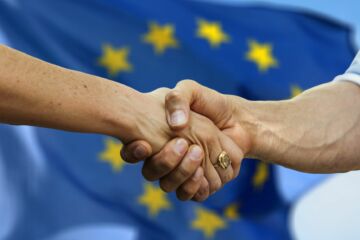 SI.1.ACC
SI.1.ACC
Fully exploit the accreditation to enhance the quality of your school. Acquire practical skills in participant selection, budget allocation, choosing relevant courses abroad, and managing the project from beginning to end.
 SI.1.CLIM
SI.1.CLIM
 SI.1.CLIM
SI.1.CLIM
 LANG.1.EADM
LANG.1.EADM
 ICT.1.3DP
ICT.1.3DP
 ART.1.DPO
ART.1.DPO
 ART.1.SREL
ART.1.SREL
 LANG.1.BEEP
LANG.1.BEEP
 SI.1.TLEA
SI.1.TLEA
 SI.1.LAL
SI.1.LAL
 SI.1.EEF
SI.1.EEF
 ICT.1.SCST
ICT.1.SCST
 SI.1.ISL
SI.1.ISL
 SI.1.LMA
SI.1.LMA
 ART.1.WBC
ART.1.WBC
 ICT.1.DCI
ICT.1.DCI
 SI.1.ENV
SI.1.ENV
 SI.1.EUR
SI.1.EUR
 ICT.1.RAD
ICT.1.RAD
 SI.1.DLEU
SI.1.DLEU
 SI.1.SGA
SI.1.SGA
 ICT.1.AIEN
ICT.1.AIEN
 SI.1.CMST
SI.1.CMST
 CSS.1.SELF
CSS.1.SELF
 ICT.1.DML
ICT.1.DML
 SI.1.EDSY
SI.1.EDSY
 ICT.1.MOFF
ICT.1.MOFF
 SI.1.FSTE
SI.1.FSTE
 SI.1.COAM
SI.1.COAM
 SI.1.COLE
SI.1.COLE

 SI.1.EDTF
SI.1.EDTF
 SI.1.PAR
SI.1.PAR
 SI.1.STEW
SI.1.STEW
 SI.1.EUE
SI.1.EUE
 SI.1.PROO
SI.1.PROO
 SI.1.RUN
SI.1.RUN
 CSS.1.INEL
CSS.1.INEL
 SI.1.LEXC
SI.1.LEXC
 SI.1.ACC
SI.1.ACC